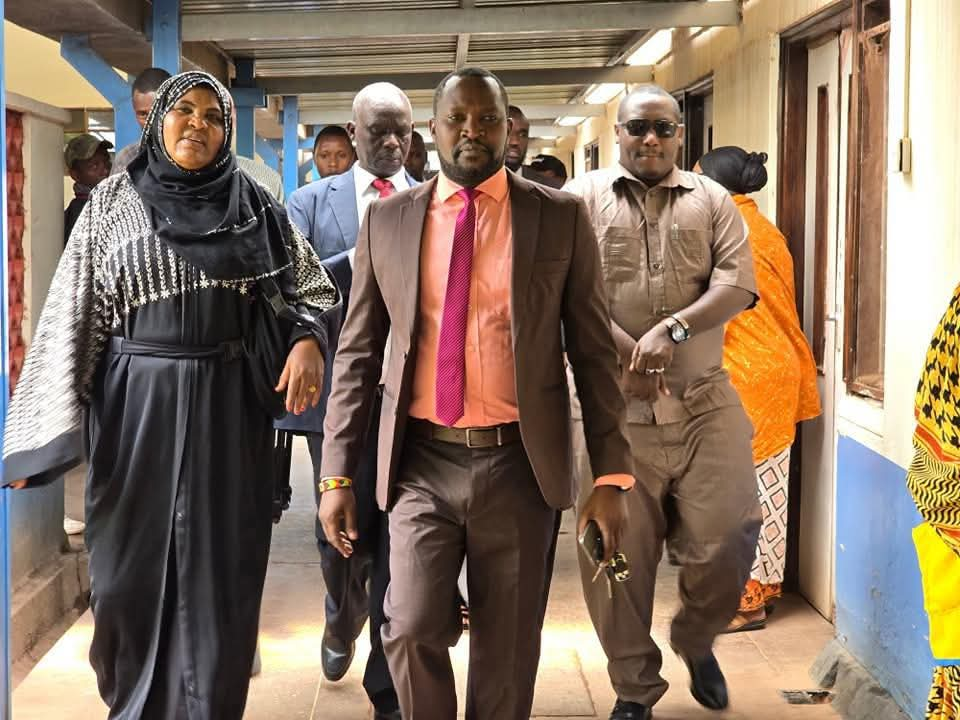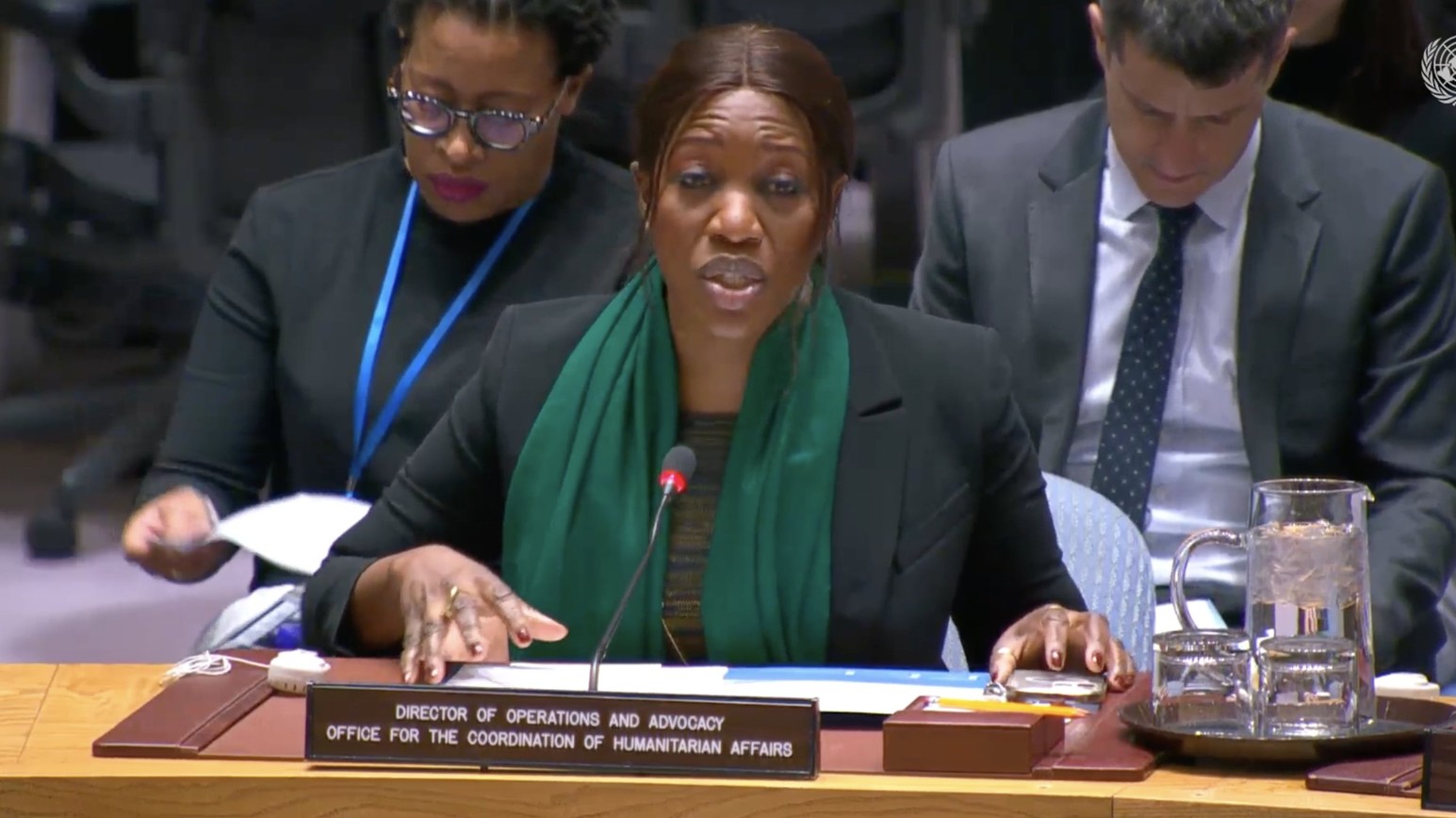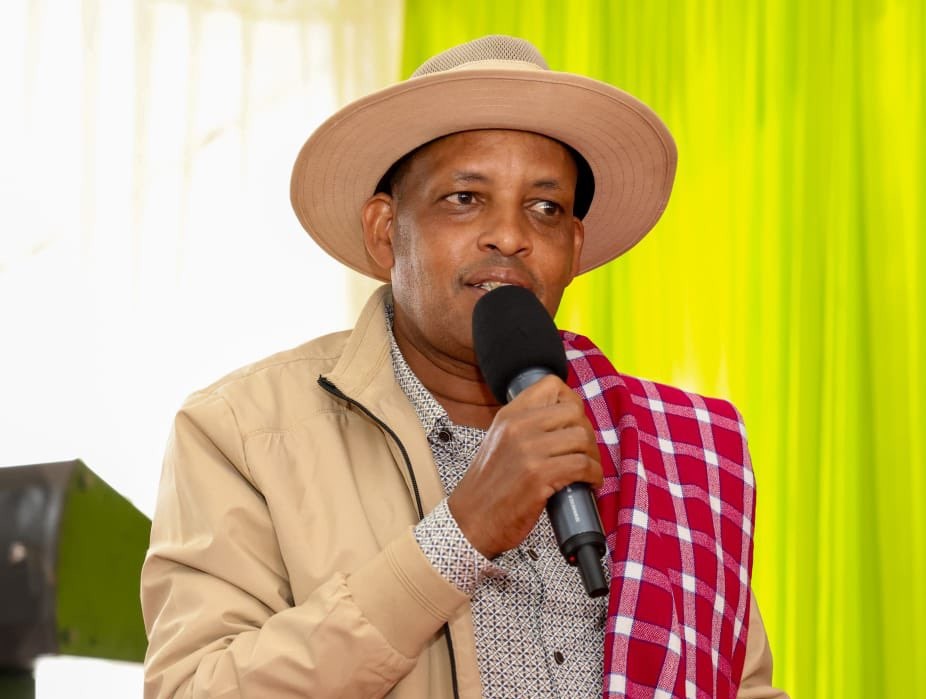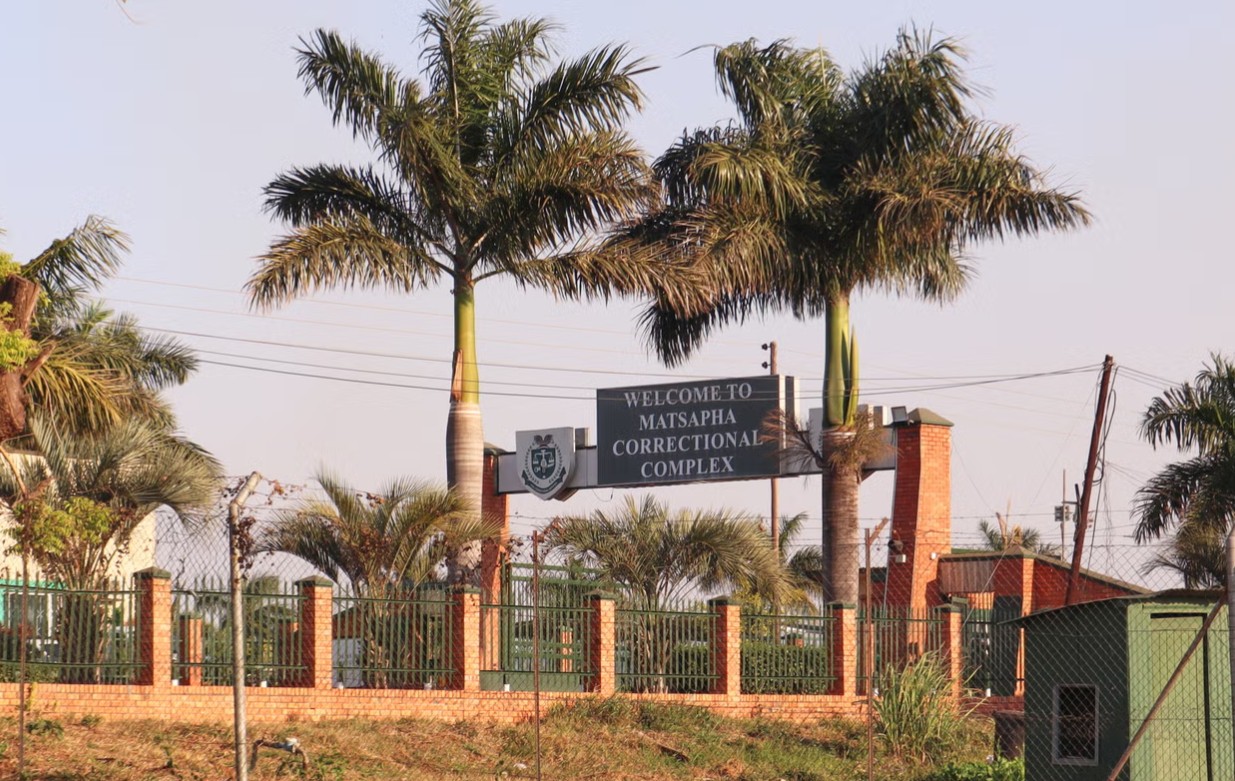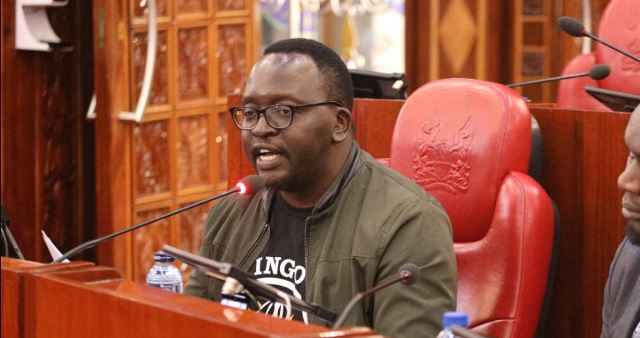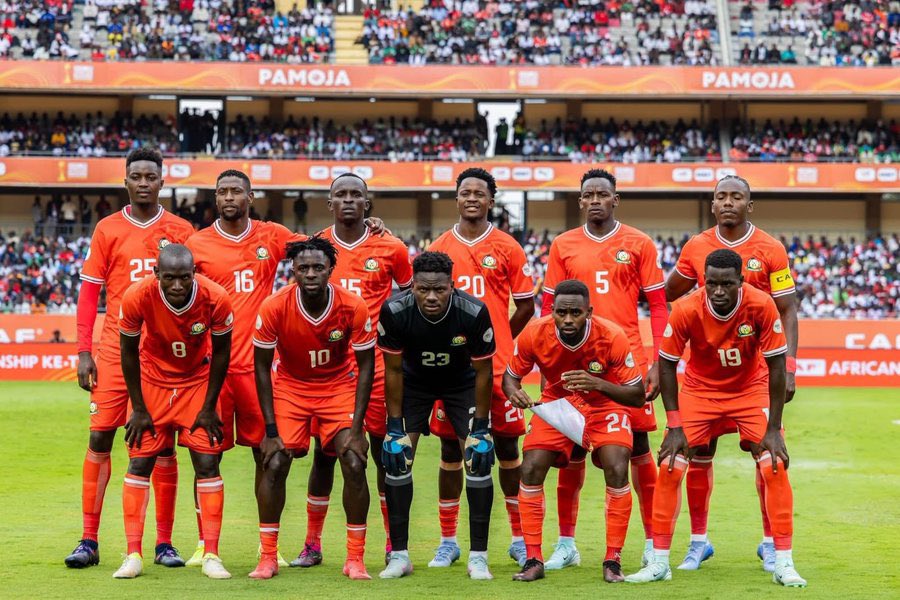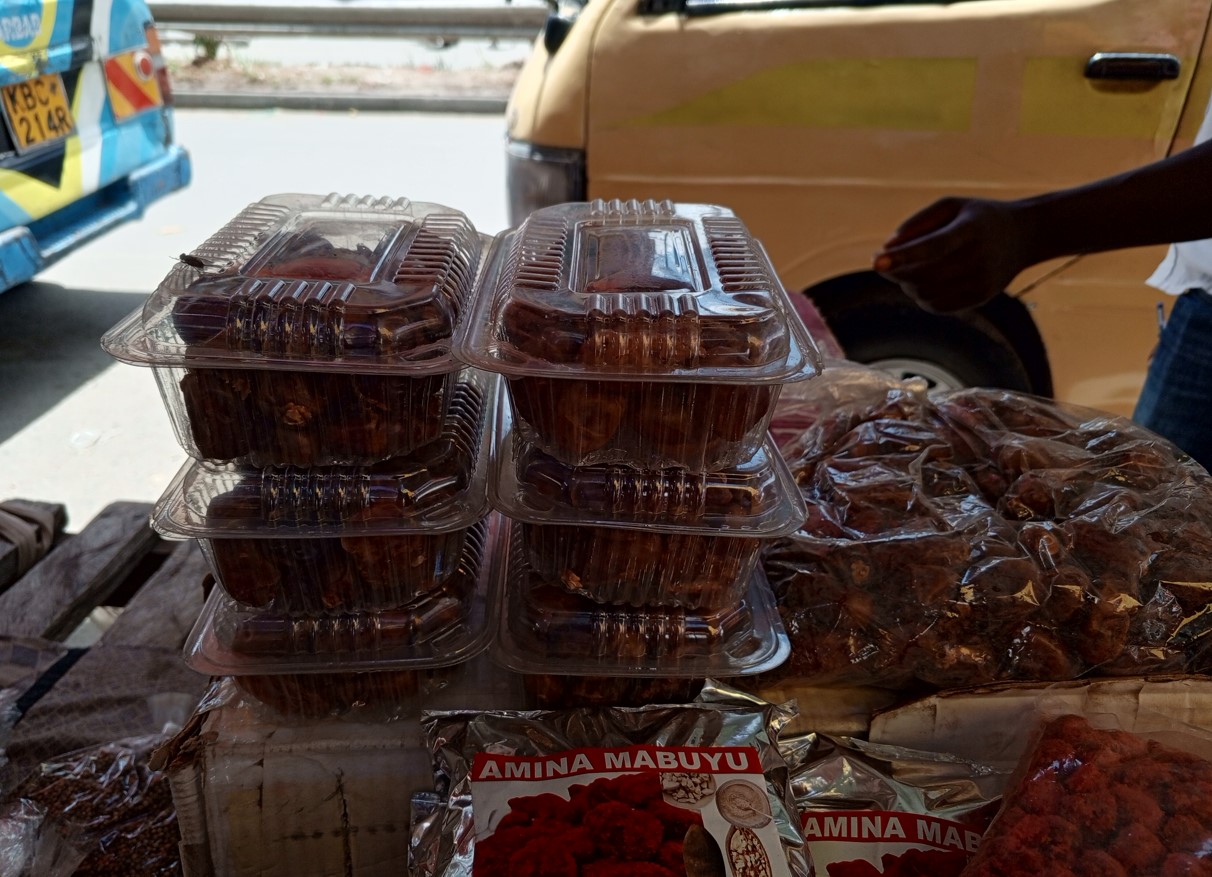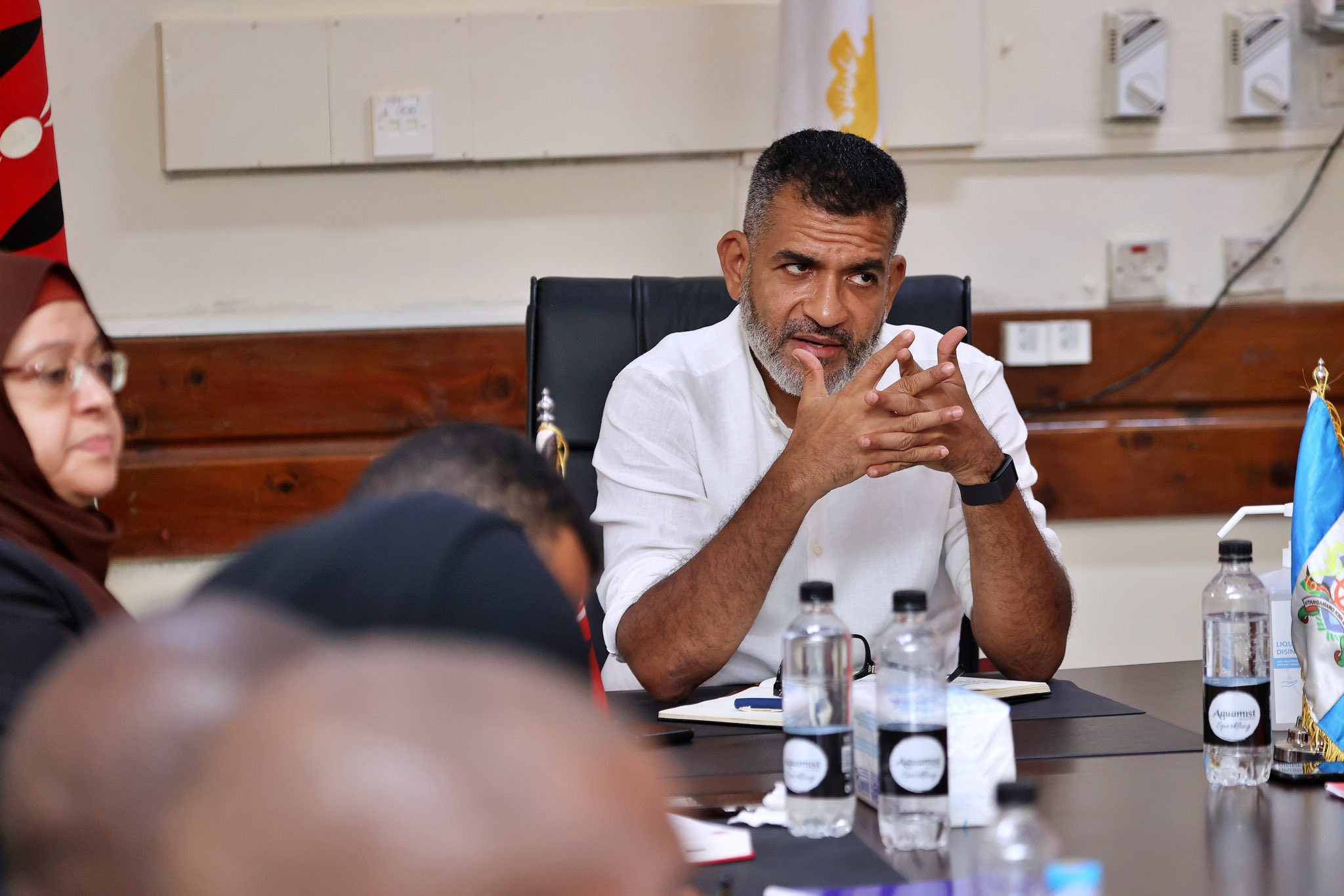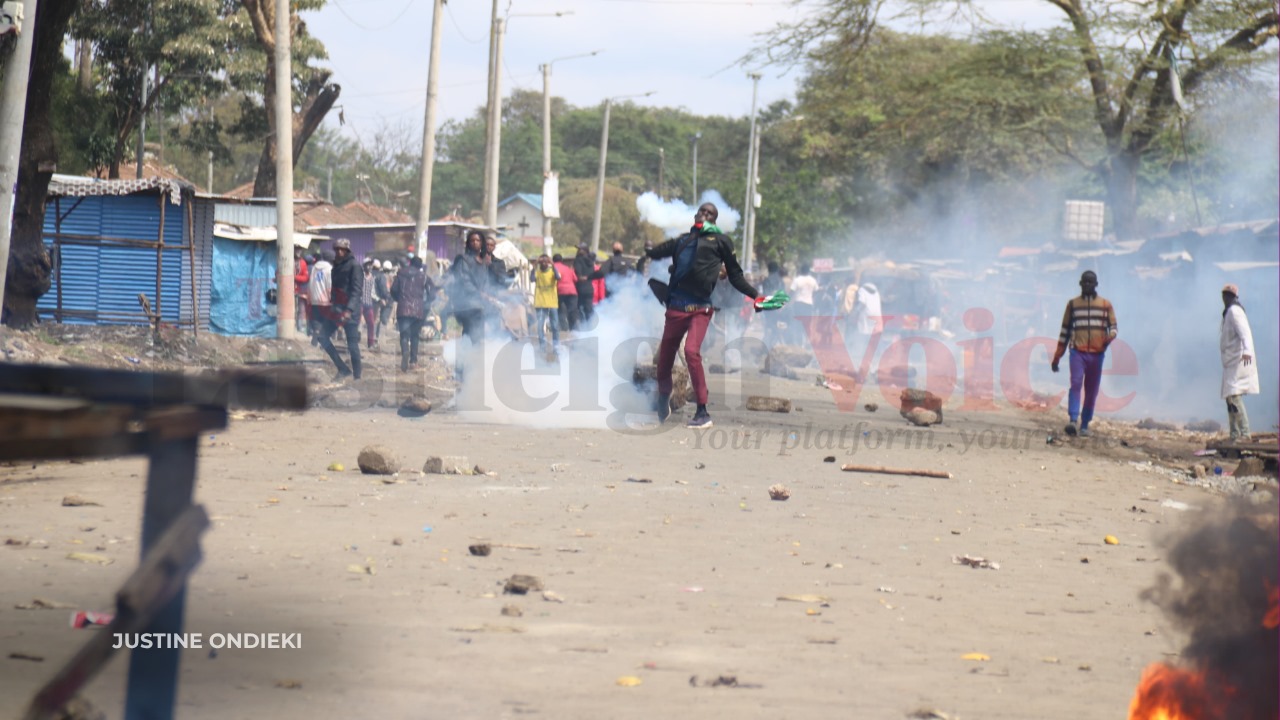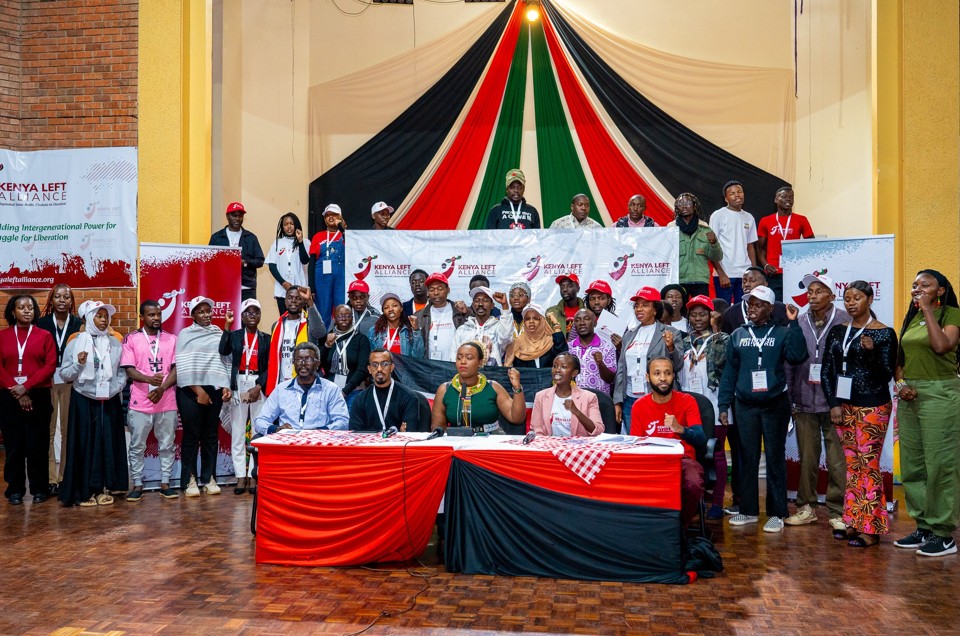Criminologists back court order on police wearing name tags, service numbers during protests
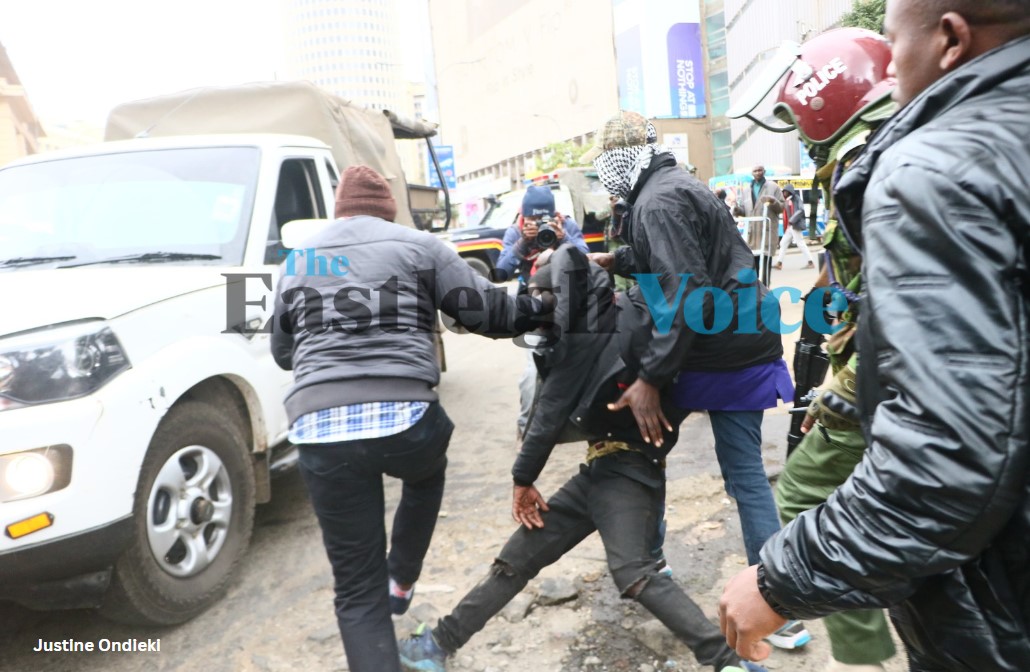
He added that police officers must not, in any way, hide or obscure their faces so as to render them difficult to identify.
The Professional Criminologists Association of Kenya (PCAK) has supported the call for officers deployed to manage protests to wear uniforms with visible name tags, in accordance with the National Police Service's Standing Orders.
This recommendation follows a ruling by Justice Bahati Mwamuye earlier this week.
More To Read
- Murkomen warns vandalism, arson and looting now considered terrorism in Kenya
- Kenya joins list of nations with worsening human rights record
- LSK President Faith Odhiambo tears into Murkomen for misusing terror charges to silence dissent
- Nairobi, Kiambu hardest hit as police response to June, July protests criticised
- Terrorism or protest? What Kenyan law says about anti-government demos and charges
- Law Society of Kenya cautions public against fraudulent fundraising drives for arrested protesters
In a statement, PCAK highlighted that many of its senior members are also part of the National Police Service and thus called on all officers to adhere to the high professional standards set by the association and the constitution.
"The Professional Criminologists Association of Kenya (PCAK) received Judge Bahati Mwamuye's dictum on the affixation of name tags by police officers during protests with gratification. The court determination delivered on Wednesday, August 14, is in tandem with PCAK's ideals of transparency and accountability within the criminology and security sectors," the statement signed by the association's Founding Chairperson, Munene Mugambi, noted.
"With a significant number of police officers, including senior command of the service, being bona fide members of PCAK, the association calls upon these criminologists to uphold and exercise the rule of law to its fullest expectation and live up to the high professional conduct espoused in PCAK," he added.
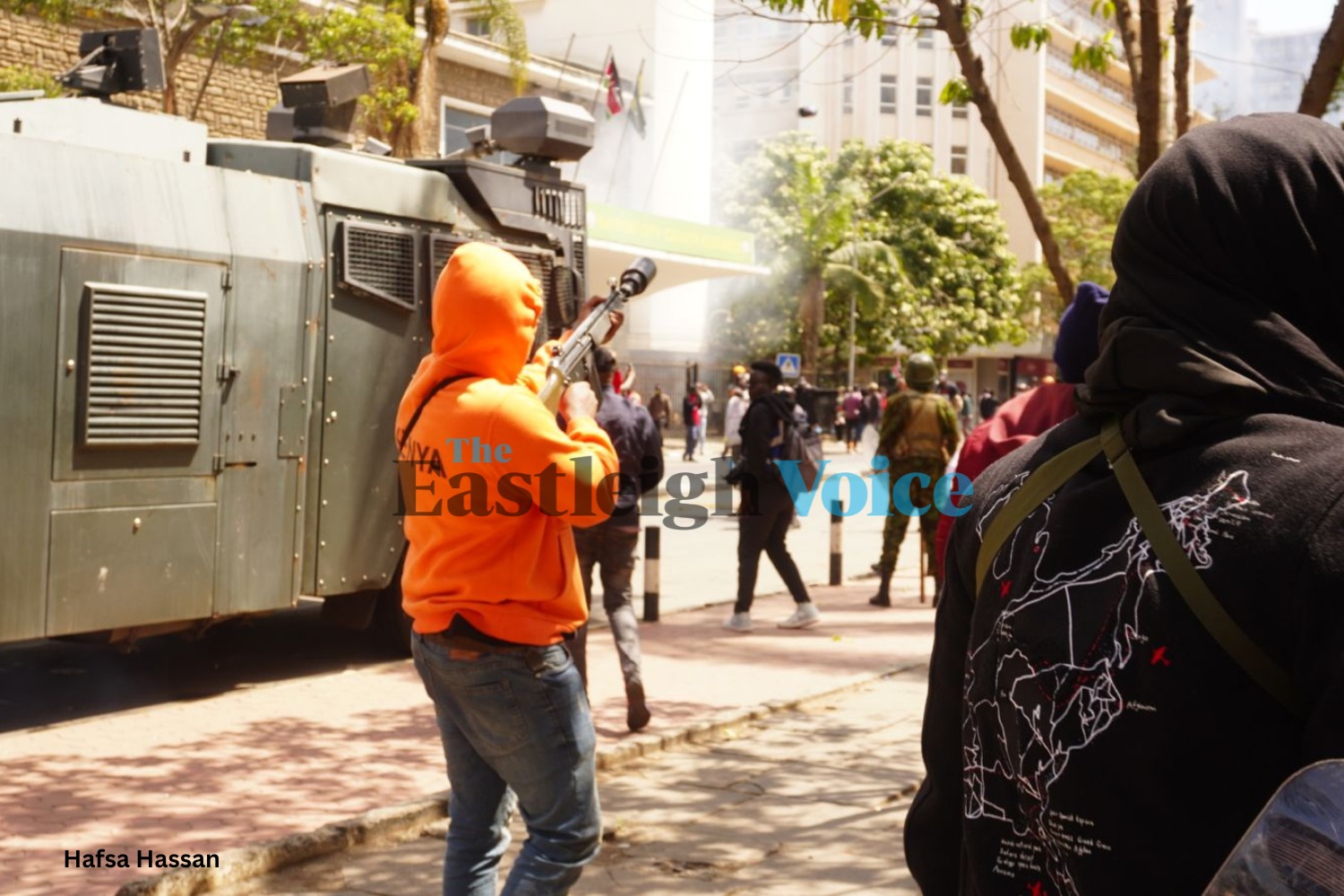 A plain-cloth police officer lobs a teargas cannister at protestors in the Nairobi CBD on June 25, 2024. (Photo: Hafsa Hassan)
A plain-cloth police officer lobs a teargas cannister at protestors in the Nairobi CBD on June 25, 2024. (Photo: Hafsa Hassan)
Justice Mwamuye ruled that police officers must ensure full compliance with paragraph 10 of the sixth schedule of the National Police Service Act in terms of ensuring that all uniformed police officers or persons acting under the direction, control, or in support of the National Police Service shall at all times affix a name tag or an identifiable service number in a clearly visible part of their uniform when engaging with, providing security for, or in any way dealing with any person(s) who is or planning on assembling, demonstrating, picketing, or petitioning, and they shall not remove or obscure the same.
He added that police officers must not, in any way, hide or obscure their faces so as to render them difficult to identify.
During the protests, masked officers in plain clothes patrolled the city in unmarked vehicles and fired tear gas towards protesters, resulting in numerous brutal incidents of police excess.
The camouflage enabled them to mingle with unsuspecting protesters and pounce on their targets without alarming them, but, according to the Law Society of Kenya, the incognito appearance of police officers subjected protesters to illegal arrests, intimidation, torture, inhuman and degrading treatment, and other excesses and violence.
LSK has sued one of the officers by the name of Martin Mbae Kithinji, who was caught on camera manhandling journalist Hanifa Farsafi on June 18 while unlawfully arresting her at a peaceful and armed protest outside the Kenya Archives.
"To allow members of the police service to don civilian clothes and make them unaccountable cannot be said to be striving for the highest standards of professionalism and discipline among its members. Neither can it be said to be making the National Police Service transparent, accountable, or respecting human rights and freedoms," LSK Member Dudley Ochiel argued in court.
On September 17, the Attorney General and the Inspector General of Police will discuss the matter after filing their responses.
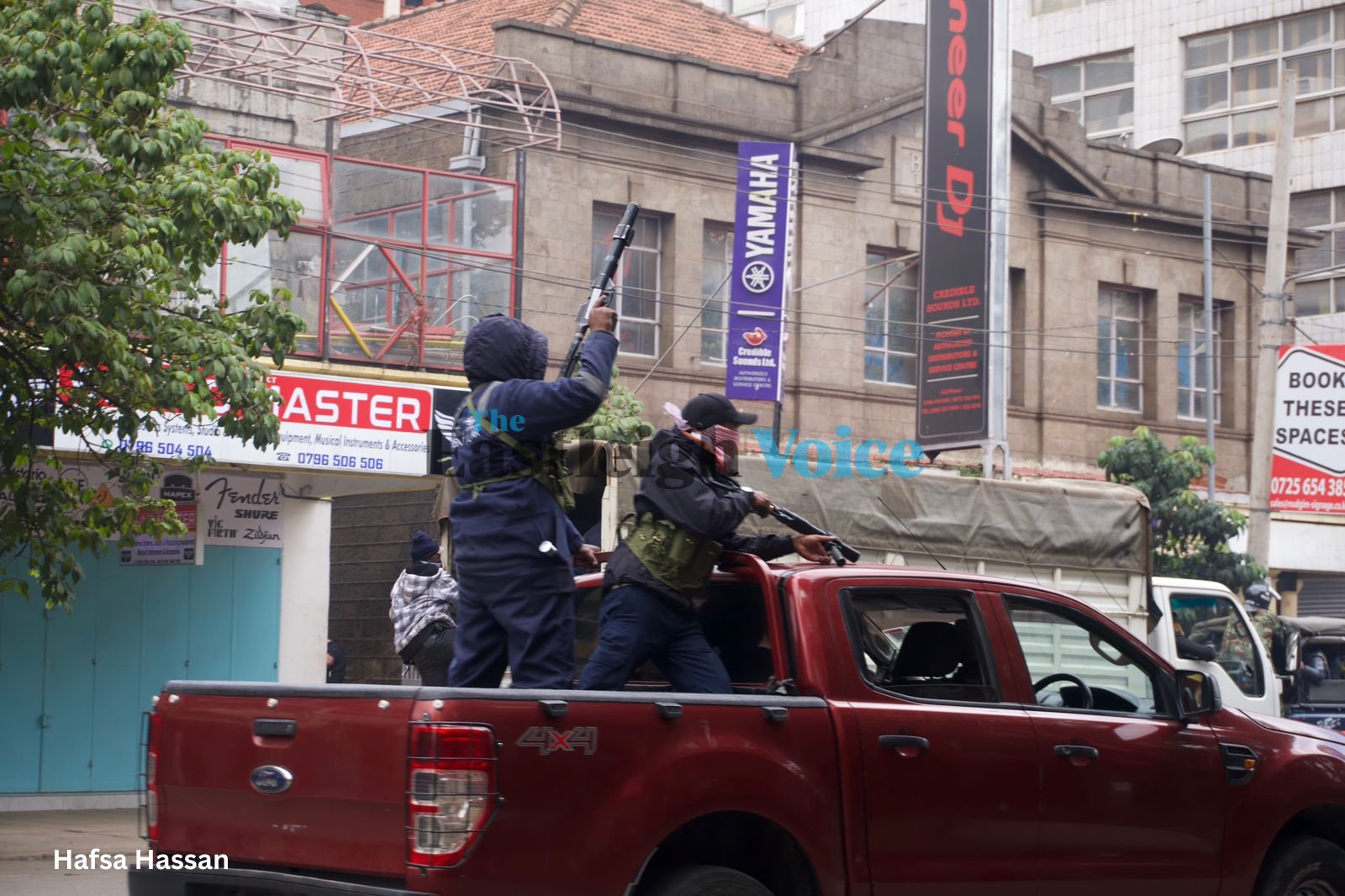 Plainclothes police officers fire teargas at protesters in Nairobi CBD, aboard an unmarked vehicle as others patrol on a police pick-up during the anti-government protests on Thursday, June 27, 2024. (Photo: Hafsa Hassan)
Plainclothes police officers fire teargas at protesters in Nairobi CBD, aboard an unmarked vehicle as others patrol on a police pick-up during the anti-government protests on Thursday, June 27, 2024. (Photo: Hafsa Hassan)
Top Stories Today
